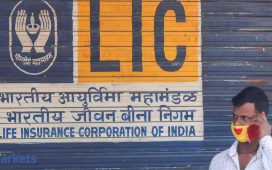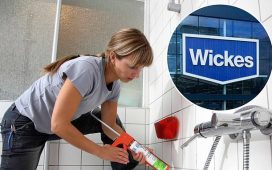BT is set to pocket more than £1 billion selling off copper from its Digital Voice programme as it switches the country to digital phone lines, Money Mail can reveal.
Angry customers are now demanding the money is used to lower their bills.
Money Mail has received a bumper mailbag following our visit to a BT Digital Voice roadshow event last week.
BT is touring the country with a roadshow offering face-to-face guidance on the digital switch with more than 200 events.
And last week we visited BT events in Manchester and Macclesfield in Cheshire to learn first hand how we must prepare for the change — such as how we might plug old phones into digital adapters, connect our lines to internet hubs and order free equipment.

Digital switch: BT is switching from old analogue signals using copper phone lines to a Voice over Internet Protocol system in the next couple of years
The telecoms giant is switching from old analogue signals using copper phone lines to a Voice over Internet Protocol (VoIP) system in the next couple of years — with phone calls being made over the internet via fibre optic cables.
The rollout – known as Digital Voice — is targeting 10 million homes with a total of 29 million homes affected by this new landline revolution.
When the copper lines are no longer required BT will rip many of them out to extract 200,000 tons of copper worth £1 billion in scrap metal.
Many readers say the profits from the sale of copper phone lines should be used to cut customer costs rather than line the pockets of shareholders.
BT enjoyed pre-tax profits of £1.7 billion in the year to March. Yet in the same month it hit customers with inflation-busting bill hikes of 14.4 per cent.
Carole Homan, 79, from Newport on the Isle of Wight, says: ‘It makes me furious to learn BT will profit from selling off the old copper. It should be used to lower the bills of people forced on to Digital Voice against their will. The new technology requires electricity to work — which we pay for. It’s time this greedy firm handed something back.’
Paul Hubbard, of Coldwaltham in West Sussex, says: ‘If BT is making a financial killing by switching from copper to fibre — then selling it off — it should be reflecting that in lower bills, not stuffing its pockets with more profits.’
Reader Alan Macey agrees: ‘The change to a digital system is surely going to be a financial bonanza for BT with metal salvage sales and lower maintenance costs. There is no excuse for it to raise fees. They should go down rather than up.’
But retired BT engineer Duncan Keeler, 75, of Cockermouth in Cumbria, says: ‘BT is a business so must make a profit, but the cost of replacing copper with fibre cables is huge. The money from selling copper must be reinvested to provide a top-quality service we can afford.’
BT says installing full fibre broadband is costing it £15 billion and any proceeds from copper sales will be reinvested in the company.
It stated on its website in the summer: ‘This year alone, the programme will extract over 200 tons of copper cable.’
While in its annual report last year it stated: ‘As we replace old copper networks with fibre, we’ll be able to recover and sell up to 200,000 tons of copper through the 2030s in line with customer migrations.’

Copper haul: When the copper lines are no longer required BT will rip many of them out to extract 200,000 tonnes of copper worth £1bn in scrap metal
The telecoms giant uses buzz terms such as ‘sustainability drive’ and ‘exchange clearance operation’ (eco) programme to explain away how old copper lines are being sold off as scrap metal when the old analogue phone network is ‘retired’ at the end of 2025.
Matthew Howett, founder of telecoms analyst Assembly Research, says: ‘BT has already set up the copper recovery programme — but with the price of copper fluctuating so much it is probably still working out what makes sense before deciding how to recover the valuable metal.
‘It will not be until the full fibre switch is completed that much of the work gets done. BT will probably be getting an idea of how to extract the old copper wires when laying down the fibre within the same ducts already being used, rather than taking it all out at the same time. Later on, engineers will return to take out the old copper.’
He adds: ‘Although selling the copper should bring in money for BT, the savings to be made from not having to send engineers to repair old copper lines may be an even bigger motivation for getting the Digital Voice rollout completed.
Fibre optics do not have a recyclable value but don’t come with such a high maintenance cost.’
There are an estimated 25 million miles of copper cables criss-crossing the country. The copper cables are typically sheaved in PVC plastic and between 0.3mm and 0.9mm in diameter.
‘Twisted pair-lines’ often connect a single home from a telegraph pole outside — and these will be replaced on a ‘case-by-case’ basis as fibre is laid to the home.
But more than 200 phone cables are typically bundled together in eight-inch diameter ducts in trenches along roads and pavements to serve communities — dug about three feet underground — and these are what BT is expected to pull out alongside roads and under pavements.
These bundles feed phone junction boxes — green cabinets on the side of roads — from telephone exchanges several miles away.
The copper wires can be sent to a scrap merchant who puts them through a ‘granulator’ machine that crushes the material into tiny particles. Then an ‘electrostatic separator’ removes the copper from the plastic.
Among the scrap merchants BT is known to have used for ‘recycling obsolete copper cabling’ is European Metal Recycling (EMR), based in Warrington, Cheshire.

Network: BT says the switch to digital phones and installing full fibre broadband is costing it £15bn and any proceeds from copper sales will be reinvested in the company
Another favoured recycling company that is used by BT to extract copper is N2S, of Bury St Edmunds in Suffolk.
Paolo Pescatore, a telecoms analyst for PP Foresight, says: ‘With an ambitious target for Digital Voice we might expect to see engineers recovering copper relatively soon — but mostly once the programme is completed in a couple of years.
‘But it will be a slow process as BT must ensure everything is fully working before removing the old copper lines. Some of the money may be used to connect those who have not yet got fibre to the home — but as a business adding value for its shareholders is also a consideration.’
Karen Egan, senior telecoms analyst at research company Enders Analysis, says copper might also be extracted from telegraph poles stretching across the country more than 30 feet above our heads without us even noticing.
She says: ‘Taking copper lines off poles is a straightforward process. It’s unlikely the skyline will look any different as they will be replaced with fibre cables.’
BT says the extraction of copper by its subsidiary Openreach from so-called ‘legacy cables’ will be a gradual process, with many rural locations continuing to be connected by copper for many years.
However, already some 10 million homes now have ‘fibre-to-the-premises’ (FTTP) that do away with any need for copper — and the target is 25 million before the end of 2026.
There is a Government target to have all homes fully fibre by 2033. When homes are FTTP BT can take the copper out.
One scrap merchant, who did not wish to be named, says: ‘The price of copper has exploded thanks partly to a push to get us all to drive electric cars — which can use five times as much of this metal than traditional vehicles.’
He adds: ‘BT knows full well it is sitting on a copper mine with scrap merchants paying as much as £6,000 a ton for top quality phone line wire. Of course, there are going to be costs in taking down the old lines. But scrap metal merchants already have the gear to take out the copper.’
Other scrap merchants, such as Reclamet in Birchington, Kent, said they might pay £5,200 a ton for BT copper from the phone lines — meaning 200,000 tons could net the telecoms giant perhaps £1.04 billion.
The price of copper has more than trebled over the past decade — from $0.84 (about 70p) a pound in 2000 to $3.65 (£3) today.
A BT spokesman says: ‘Openreach [a BT subsidiary] is investing £15 billion to build full fibre broadband for 25 million homes and businesses by the end of 2026 — retiring the copper network.
The copper recovery exercise will take at least a decade with proceeds reinvested into the business to help support the future of the network.’
toby.walne@dailymail.co.uk
Some links in this article may be affiliate links. If you click on them we may earn a small commission. That helps us fund This Is Money, and keep it free to use. We do not write articles to promote products. We do not allow any commercial relationship to affect our editorial independence.











